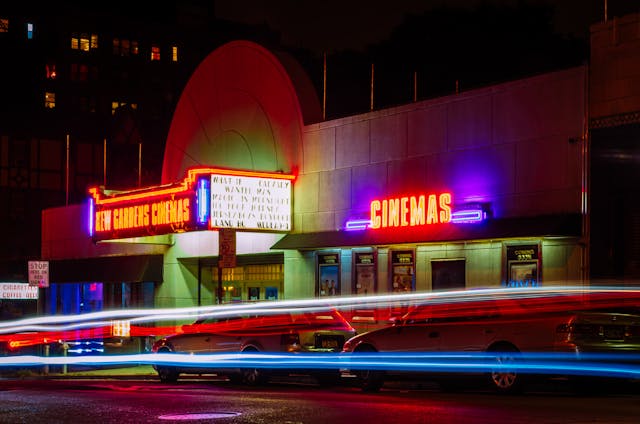The Power of Cinematic Soundtracks: How Music Enhances Movie Magic
When we think of our favorite movies, it's not just the visuals, plot, or actors that stand out. Often, it's the music—the sweeping orchestras, haunting melodies, or energetic beats—that truly elevate the experience. Soundtracks are integral to a film's atmosphere, guiding emotions, building tension, and even telling the story in ways words alone cannot. In this article, we’ll explore the vital role of cinematic soundtracks and how music can transform a movie into a timeless masterpiece.

Music as an Emotional Guide
Setting the Mood
One of the most powerful ways music impacts film is by establishing the emotional tone. From a heartwarming family movie to a spine-chilling horror flick, the music chosen for a scene sets the mood before a single word is spoken. A somber piano melody in a drama can immediately evoke feelings of sadness or loss, while an upbeat song in a comedy can lift the audience’s spirits. Without music, a scene that might be emotional or intense could feel flat and unimpactful.
Heightening Emotional Responses
Music has the ability to enhance the emotional journey of a film. Think of the iconic music from movies like Schindler’s List or Titanic—the music alone brings tears to our eyes even before the scene plays out. This happens because music resonates deeply with our emotions. For instance, a rising orchestral swell signals anticipation, and a soft, lingering melody might evoke longing or nostalgia. The subtle manipulation of these elements makes the audience feel what the characters are experiencing, creating a deeper connection to the story.
Building Atmosphere and World-Building
Setting the Scene
In fantasy and science fiction films, the soundtrack can play a crucial role in world-building. Music can transport the audience to an entirely different universe, helping to establish the environment and the rules of the fictional world. John Williams’ score for Star Wars is a perfect example. The grand, heroic themes evoke a sense of epic adventure, while the mysterious and ominous tones enhance the sense of danger or the unknown in different parts of the galaxy.
Similarly, in horror films, music can help to establish a sense of unease. The eerie notes and discordant strings used in films like The Exorcist or Jaws are now synonymous with creating fear. Without these iconic soundtracks, these films would not have the same lasting impact or sense of dread.
Reflecting Character Themes
Composers often craft specific musical motifs or themes for characters, making the music an essential part of storytelling. For instance, in Harry Potter, the famous Hedwig’s Theme signifies magic, whimsy, and the enchanted world of wizards. Each time that melody is heard, the audience is reminded of the wonder of Harry’s universe. The recurring use of character themes allows the audience to identify with certain emotions or journeys associated with that character.
Creating Tension and Drama
Building Suspense
A soundtrack doesn’t just help to support emotion—it can also generate drama and suspense. Think of the famous ticking clock sound in Dunkirk, where the music intensifies as the situation becomes more perilous. By using rapid rhythms or distorted sounds, music can signal imminent danger, creating a sense of urgency and gripping the audience’s attention. This heightens the tension and keeps viewers on the edge of their seats.
Enhancing Action Sequences
In action films, fast-paced, rhythm-driven music propels the action forward. The pounding drums or electric guitar riffs found in movies like Mad Max: Fury Road or The Dark Knight ramp up the excitement, giving the audience an adrenaline rush. Without a powerful soundtrack to accompany car chases or fight scenes, these sequences would lose much of their intensity and impact.
The Influence of Iconic Film Composers
John Williams: The Master of Emotion
John Williams is one of the most well-known film composers, famous for his ability to craft soundtracks that perfectly match the spirit of a film. From Indiana Jones to Jurassic Park, Williams' scores are instantly recognizable. His iconic melodies have become a crucial part of the moviegoing experience, making the films he works on not just memorable in terms of visuals and plot, but emotionally unforgettable as well.
Hans Zimmer: A Modern Maestro
Another influential composer is Hans Zimmer, whose scores have become synonymous with modern blockbuster films. From Inception to The Dark Knight trilogy, Zimmer’s use of sound creates an emotional undercurrent throughout the entire film. His minimalist approach often incorporates deep, resonant tones and gradual build-ups, adding layers of meaning and impact. Zimmer’s scores enhance the spectacle of modern cinema, guiding emotions and keeping the audience engaged from start to finish.

The Lasting Impact of a Great Soundtrack
Soundtracks Beyond the Screen
Some soundtracks become iconic in their own right, transcending their original films. Consider The Bodyguard soundtrack, featuring Whitney Houston's “I Will Always Love You,” or Guardians of the Galaxy, which reintroduced classic rock to a new generation. These soundtracks continue to influence music culture, with songs gaining popularity well beyond their movie connections. Sometimes, a film’s music becomes so integral to its identity that it lingers in the public consciousness for years.
Creating Memories
Ultimately, soundtracks shape the way we remember movies. They often become inextricably linked to certain moments in a film, and just hearing a specific piece of music can bring an audience back to that emotional experience. This explains why a movie’s soundtrack can evoke nostalgia and why fans love to listen to scores long after the film has ended. The music doesn’t just accompany the story—it becomes part of the story itself, forever etched in the memory of those who experience it.
Conclusion: Music and Movie Magic Go Hand-in-Hand
Cinematic soundtracks play an essential role in shaping the overall experience of a film. Music has the power to amplify emotions, build tension, create atmosphere, and even shape a film’s identity. Composers like John Williams and Hans Zimmer have proven that a powerful soundtrack can transcend its medium, becoming an inseparable part of movie magic. The next time you watch your favorite film, remember that the music isn’t just there to fill the silence—it’s there to guide you through the story and make the experience truly unforgettable.












